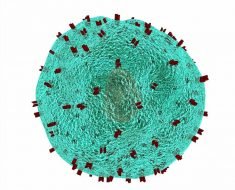4D ultrasound scans show that unborn babies respond to flavors from foods eaten by their mothers as well as to smells, according to researchers from Ashton University and Durham University’s Fetal and Neonatal Research Lab.
What to Know
-
4D ultrasound scans of expectant mothers’ wombs can show a great deal detail in the facial expressions of their unborn babies as well as the babies’ reactions to stimuli outside the womb, including reactions to what the mother is eating or smelling.
-
Fetuses have distinct reactions to things they like or don’t like ― they reacted to their mothers’ eating carrots with more “laughter-face” responses, while those exposed to kale showed more “cry-face” responses.
-
It’s believed fetuses experience taste and smell through inhaling and swallowing the amniotic fluid in the womb.
-
Repeated exposure to flavors of foods eaten by their mothers likely influences babies’ taste preferences after birth and potentially has implications for establishing eating habits.
-
The evidence of fetal reactions to what their mothers are eating and smelling could have important implications for understanding of the development of our taste and smell receptors and related perception and memory may help mothers learn the importance of taste and healthy diets during pregnancy.
This is a summary of the article “Babies React to Taste and Smell in the Womb – New Research.” published in Nature on September 21, 2022. The full article can be found on aston.ac.uk.
For more news, follow Medscape on Facebook, Twitter, Instagram, and YouTube.
Source: Read Full Article





